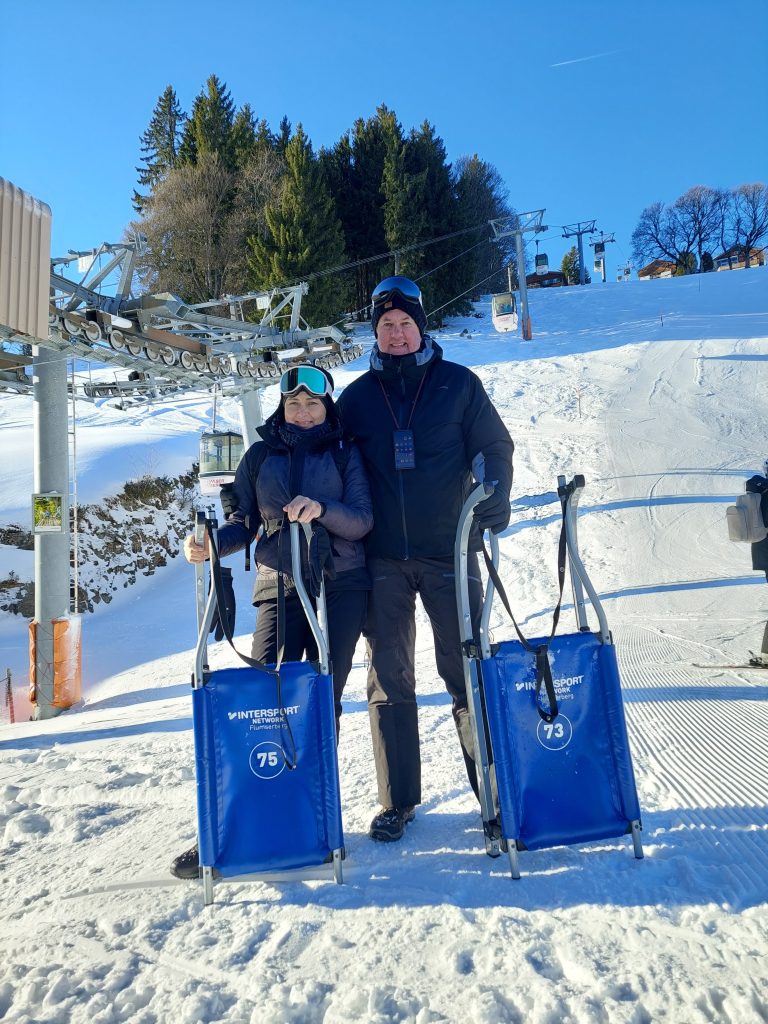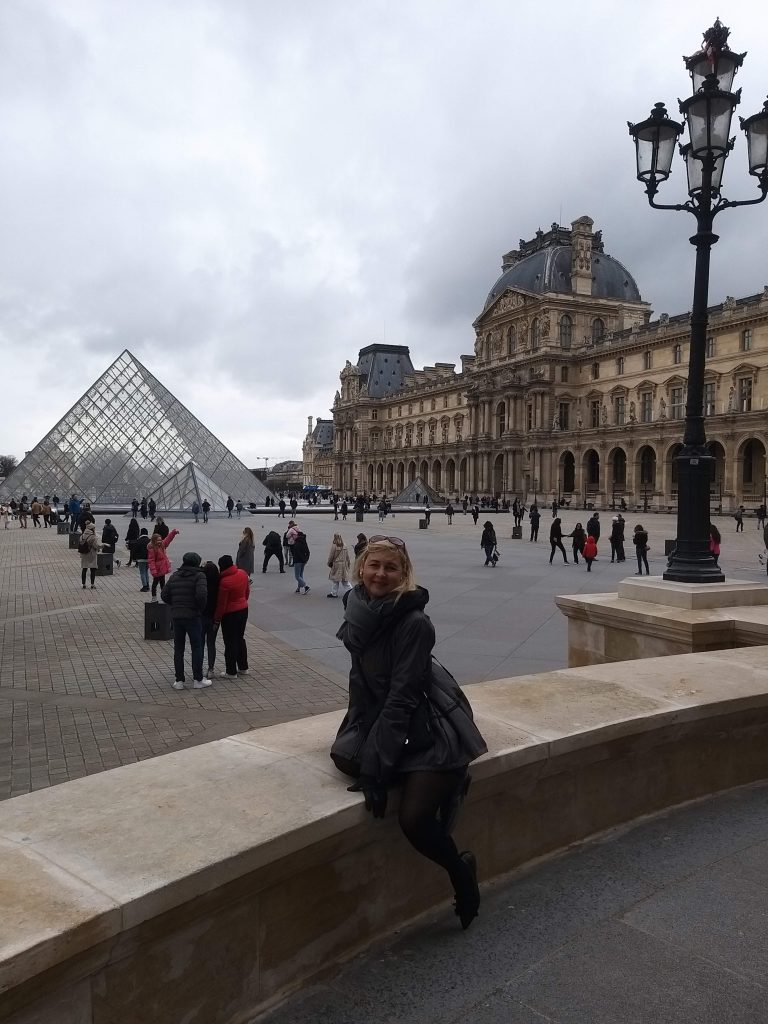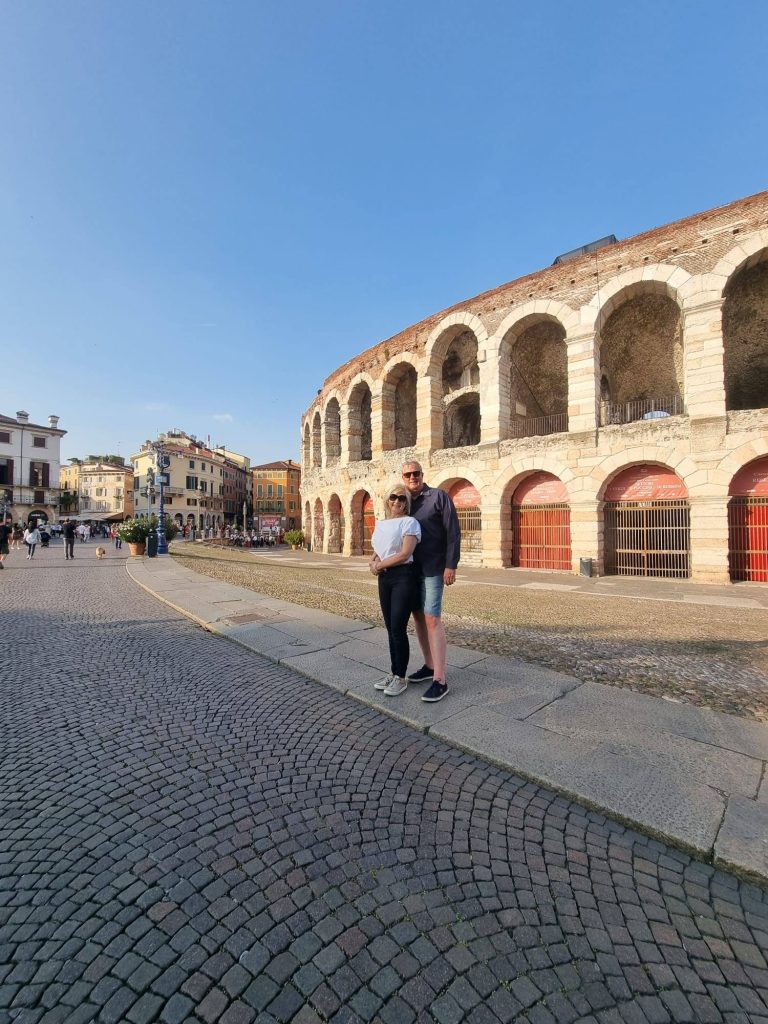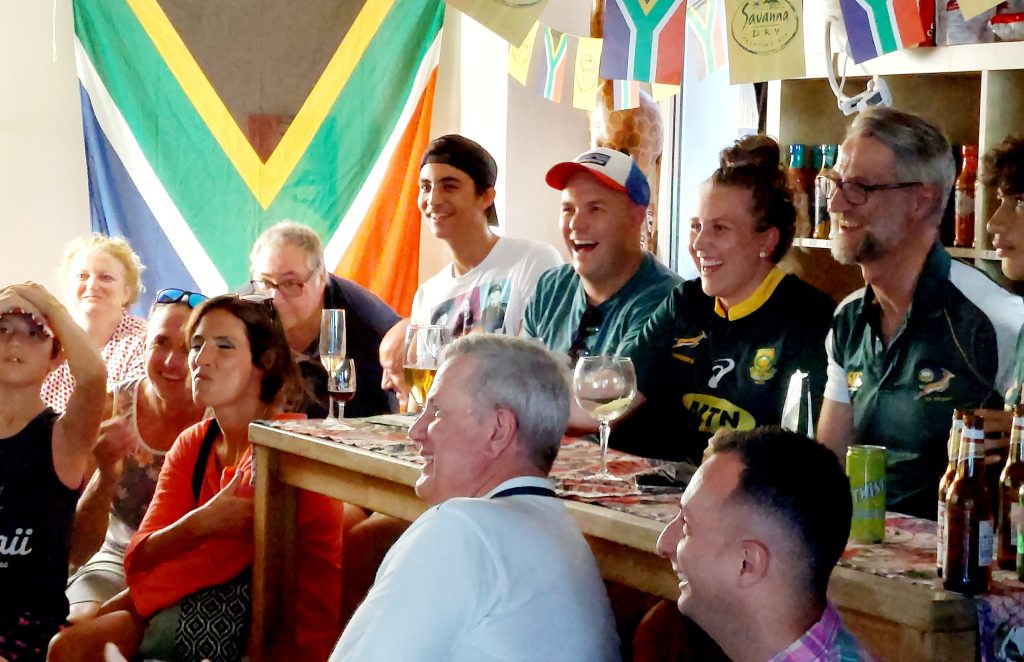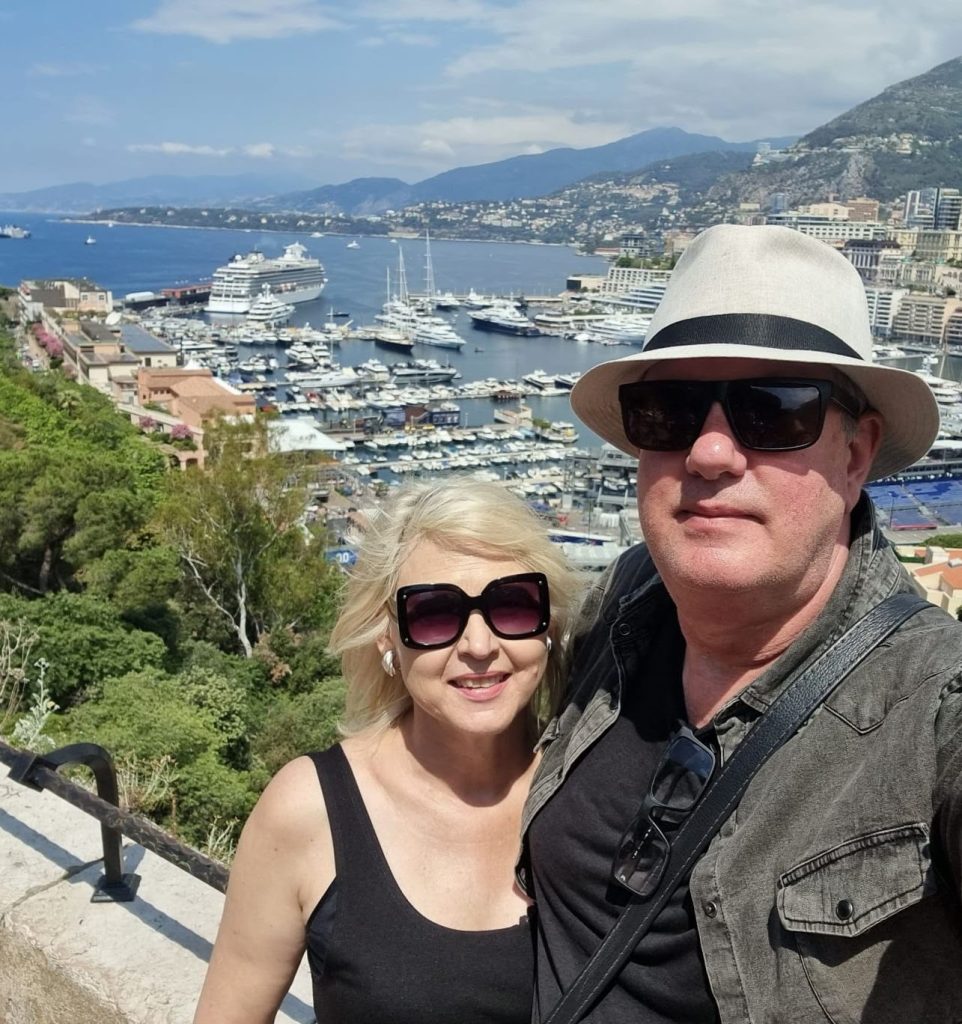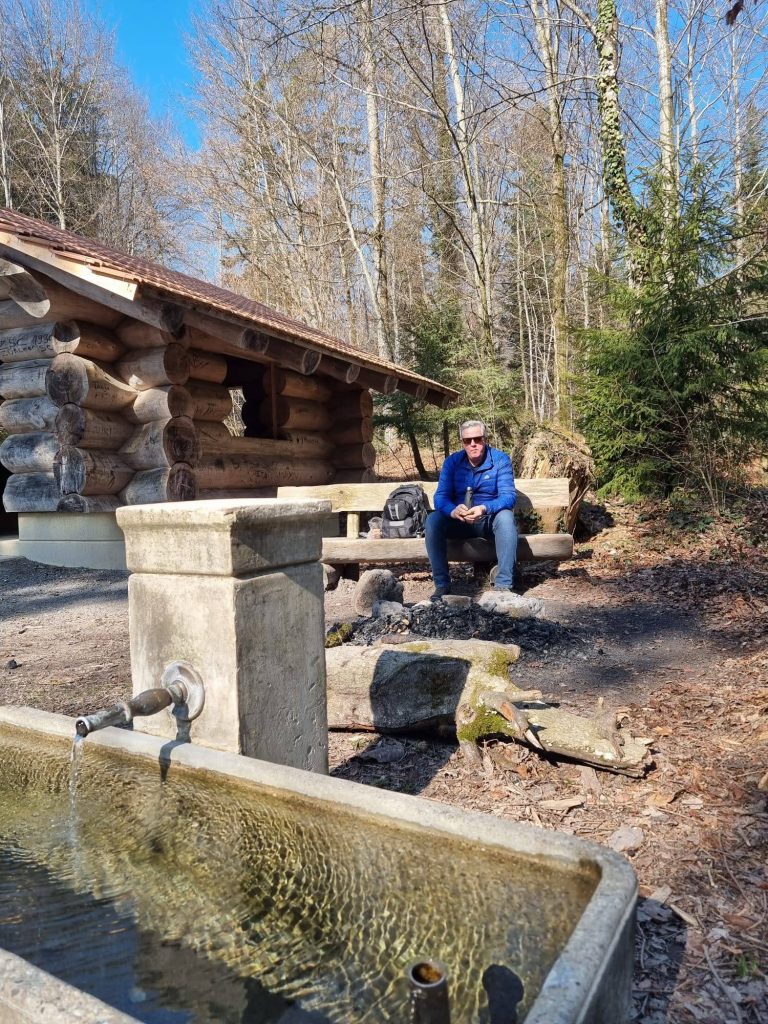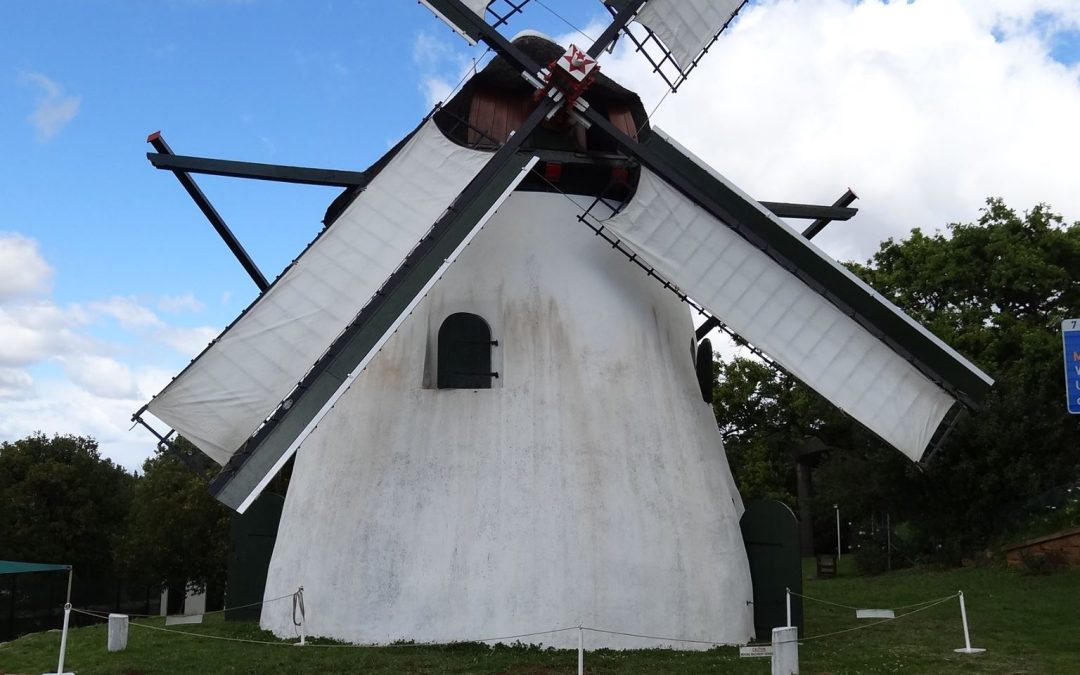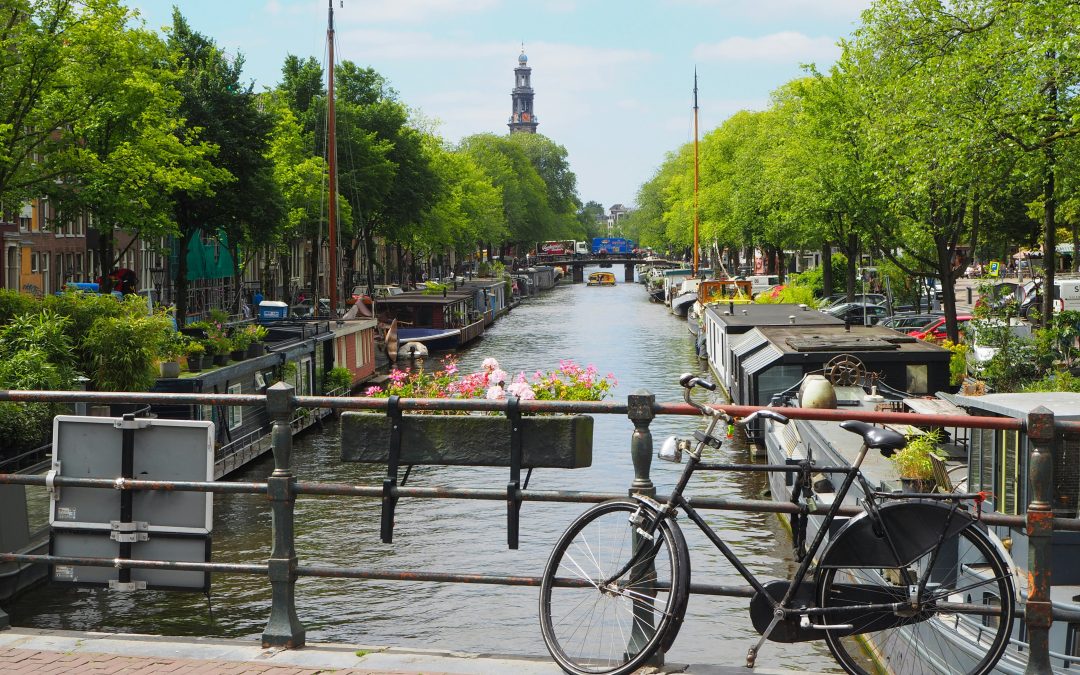Out and About is a column where we chat with people who currently live abroad, or who used to live and work abroad. This week we chat with Emmie Smit who lives in Zürich.
Hello, Emmie. Please tell us more about where you live and the reason you are there.
We live in Zürich. My husband works for an international firm, of which the headquarters are based in Switzerland. Because we love travelling, we decided to make Zürich our base, as it provides excellent transport infrastructure and easy access to the airport, public transport network and highways.
Do you still speak Afrikaans?
Our mother tongue is Afrikaans, and we communicate with our loved ones daily; mothers, children, grandchildren, siblings, friends, tax consultants, insurance brokers, and all the other important people in our lives.
I also write Afrikaans educational books for Oxford University Press. Another Afrikaans project in which I was involved as a writer is the Fable Project, published a few weeks ago. It’s available on the De la Bat School’s YouTube profile.
Do you still have contact with South Africa?
We still have bank accounts, postal addresses, and a vehicle in South Africa, and our pantry is stocked with South African products. We follow the news, sport and art happenings.
How often do you see your family?
We don’t see our children and grandchildren very often because our family members reside in Australia and South Africa.
At least twice a year, we see our children living in South Africa. Due to the consequences of Covid travel restrictions, we could not see those living Down Under for the past few years.
What were the strangest things for you to get used to?
The contrasts between Switzerland and South Africa are absolute. We found the clean, effective, safe, progressive, and prompt aspects strange. Every evening after peak traffic has subsided, maintenance teams start working on the streets. Needless to say, there are no such things as potholes or faulty traffic lights.
The quality, number and scale of Swiss municipal projects are impressive. The local municipalities or Gemeindes are well developed and maintained. Taxes are paid locally, and tremendous efforts are made to provide for the needs and enhance the local community’s wellbeing.
Switzerland is a cyclist’s paradise with breathtaking cycling trails and car-free routes. Residents are self-disciplined and abide by traffic laws. On top of that, bicycles often enjoy priority over vehicles. And, we have yet to see an unroadworthy vehicle.
Do you get the opportunity to travel?
Oh yes! We both love travelling! We took a road trip through Italy, France, and Monaco recently. Our neighbouring countries – Germany, France and Austria – are between 30 and 90 minutes from Zürich and ideal for day trips.
Did you find it difficult to adjust?
Adapting was not that difficult. Switzerland was not our first introduction to Europe. Simon lived in Germany and France before, and I lived in Denmark, so we were somewhat prepared.
We miss Afrikaans, and English is not something you hear very often either. The four national languages of Switzerland are German, French, Italian, and Romansh. Simon is fluent in German, but I am not. As I started mastering the language, I became more independent. Swiss-German is incredibly challenging and intimidating; therefore, we opt for High German!
I don’t miss my car since Switzerland has the world’s most comprehensive public transport system; you can use one ticket to get on trains, buses, boats, steamboats, cableways, and cable cars. Although I enjoy public transport, I had to make a mind shift before it started to get easier. Now I ensure that my bags are manageable because I must carry them when returning home after shopping!
Was it easy to make new friends and join the community?
It is not easy, and it does not happen overnight. But we are part of groups in person and online, such as the Facebook group South Africans living in Switzerland. We use opportunities to meet new people, such as gatherings at the Springbok Bar & Café in Wädenswil.
How does Zürich’s cost of living compare to South Africa?
Like in South Africa, and probably all over the globe, the Swiss complain about the cost of living. Zurich is one of the most expensive cities in the world. Accommodation is costly; an average two-bedroom suburban apartment is approximately R30 000 per month. Food prices are on average double South-African prices, but the quality is much higher. An R650 dinner in South Africa would cost between R1 400 and R 1800 in Switzerland.
You describe yourself as being active. What do you do to relax?
The Swiss believe that work, and leisure, should be done wholeheartedly, and we have no problem with that philosophy! During the week, work is a priority, and during weekends relaxing is. On weekends we sometimes enjoy the luxury of staying at home; other times, we will cycle to a mountain, river, or lake. When we travel further, we travel by car or public transport. Nature offers a lot; it is clean, safe, and accessible, and with farms and forests within the city borders, nature is always on your doorstep.
A Swiss Sunday is not like your typical first-world Sunday. The Swiss consider shopping as work that must be done during the week; therefore, shops are closed on Sundays and public holidays. We also like to get some food for the soul on Sundays by visiting museums, galleries, Altstädte (old cities) and the English service of the ICF Church.
What does a typical day in your life look like?
Simon works outside of Zürich for at least three days per week, at least one out of Switzerland and now and then outside Europe.
I am our household’s keeper, herb gardener and reusing and recycling manager. I work from home (or from a ferry on the lake, if I choose) on writing and arts management projects. On my morning walks at the Glatt River, I WhatsApp call family and friends.
Anything else you would like to add?
The war in Ukraine is only 1 700 km from Switzerland and on the same continent. The accessibility makes it much easier to support the Ukrainians. Locals can deliver necessities with their private vehicles at the Polish border. The refugees can help themselves with clothes, food, medication, disposable nappies, baby food, suitcases, backpacks, prams, wheelchairs, or other items.
Of the more than 12 million refugees, some also fled to Switzerland. The Swiss authorities have registered more than 54 000 Ukrainian refugees, of which a thousand were issued work permits. The refugee trauma is even more palpable when you hear it firsthand in a social setting. The locals embrace and support them in many ways. Many private initiatives make their lives more bearable while they are here indefinitely.
We found that Europeans still remember the horrors of two world wars. The wars took place in their personal living spaces, and even today, there are buildings in the neighbouring countries that bear war scars. There are about 360 000 communal shelters in Switzerland. Swiss legislation still states that every Swiss resident must be guaranteed a bomb shelter in the vicinity of their residence.
Write to us
Do you live abroad or have you recently returned? You can also write an Out and About column for us. Send an email to wereldwyd@afriforum.co.za and we will send you the questions you can answer for us.


